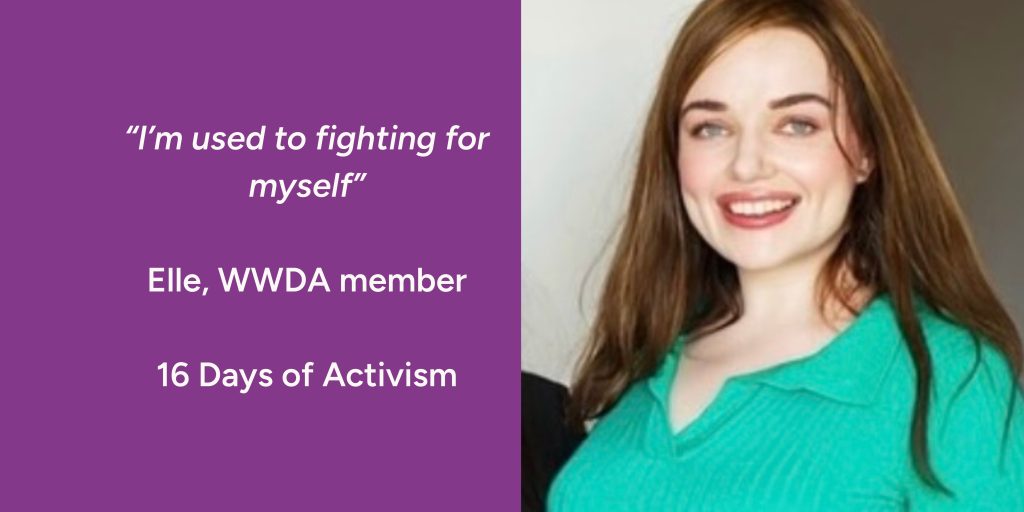Content warning: This story contains references to online harassment, racism, sexual violence and trauma that some readers may find distressing.
The moment Elle realised her images had been stolen felt like a punch in the stomach.
Her phone lit up with a message from a friend, a screenshot, a link, one after the other.
“My gut just dropped,” she remembers. “Reading these comments, with what these men wanted to do, or what they were saying about myself and my body, it was gut-wrenching.”
Her images had been uploaded to multiple adult websites without her consent. Each time one was taken down, another appeared. The violation was endless, relentless.
“It triggered off my PTSD because it just kept happening. As soon as they’d get taken down off one site, it would end up on another. It was horrific.”
For many people, the internet is a place of connection. For Elle, a proud Wiradjuri woman living with disability, it had once been that too. Her TikTok channel had grown to more than 5,000 followers, she had cultivated a safe space where she shared stories about her culture and her disabilities.
“I used to share content on chronic illness and disability and things related to my culture, because my dad’s Aboriginal,” she says.
That all changed after one of her videos went viral.
When the comments turned cruel
The messages began appearing beneath her videos, cruel, mocking, and often violent.
“I got a lot of comments, mainly from accounts that appeared to be male, saying that I was lazy,” she says. “There were a few racist slurs as well… I had death threats, rape threats, really vile comments that were just racist.”
The attacks were constant. People accused her of faking her disability, abusing the system, living off others.
“They just didn’t believe that I was, I guess, disabled… they would say things like ‘all my tax dollars are going to pay for your disability pension’. ‘Get a job, you loser.’ That one was over and over again.”
Each new notification came with a jolt of fear and anxiety. She reported the abuse to TikTok, but the platform did nothing.
“It’s scary when you’re getting that much hate and threats through your inbox as well,” she says. “You report them for hate or harassment or racism… and they don’t do anything. It makes you feel not safe. And what was worse is the platform censored me for violating community guidelines, instead of those who were violently harassing me. I still to this day don’t know what guidelines I apparently violated.”
Her mental health began to unravel.
“I was crying a lot on and off… it got to the point where I was considering harming myself,” she says quietly. “It definitely affected me.”
The fight to reclaim safety
That was back in 2021. When Elle discovered her stolen images earlier this year, the feeling of powerlessness returned but this time, she refused to let it break her. She contacted the eSafety Commissioner and demanded action.
“Thank God they actually did something,” she says. “They managed to get it all taken down.”
It didn’t erase the trauma, but it helped her reclaim some sense of control.
“I felt like I was getting violated again, which I was. I was all over again. And I have a history of complex PTSD from these various things, so I asked the eSafety Commissioner to help me, because I didn’t know what else to do.”
For Elle, fighting back is not new. She’s been doing it for years. Against stigma, against disbelief, against systems that too often dismiss women’s pain.
“Even my own diagnoses with doctors, being dismissed as a woman and told it’s all in my head, for ten years plus means that I’m used to fighting. I’m very used to fighting for myself or other people. My best friend often says I’m like a dog with a bone. I just don’t let it go.”
Strength in the face of violence
Elle lives with multiple chronic and neurodivergent conditions, including ADHD, Ehlers-Danlos Syndrome, and complex PTSD. She knows first-hand how misunderstood disability can be – especially online, where judgment is quick and harsh and compassion is slow.
“Online can be very empowering when you find like-minded individuals,” she says. “But at the same time, it’s scary. It’s extremely scary and violent.”
Her experience is part of a larger pattern of digital violence faced by women, girls and gender-diverse people with disability, where gendered hate, ableism and racism collide.
“I just want them to know that it’s insidious, it’s not okay,” Elle says. “I want the platforms to take more responsibility… when someone says, ‘I want to kill you,’ or ‘I want to do this to you,’ that’s clearly a violation of their terms. They need to act on it.”
A call for accountability
Elle’s story is one of deep violation, but it’s also one of resilience and power. She turned pain into advocacy, and a call for change.
“I think people would think twice about making comments like that and harassing people online if there was more accountability and consequences for their actions,” she says.
For Elle, strength means refusing to give up, not just for herself, but for others who come after her.
“No one should feel unsafe online. Governments, platforms and communities must work together to stop digital violence before it happens, respond when it does, and listen to the voices of women with disability who are leading change,” says Elle.

